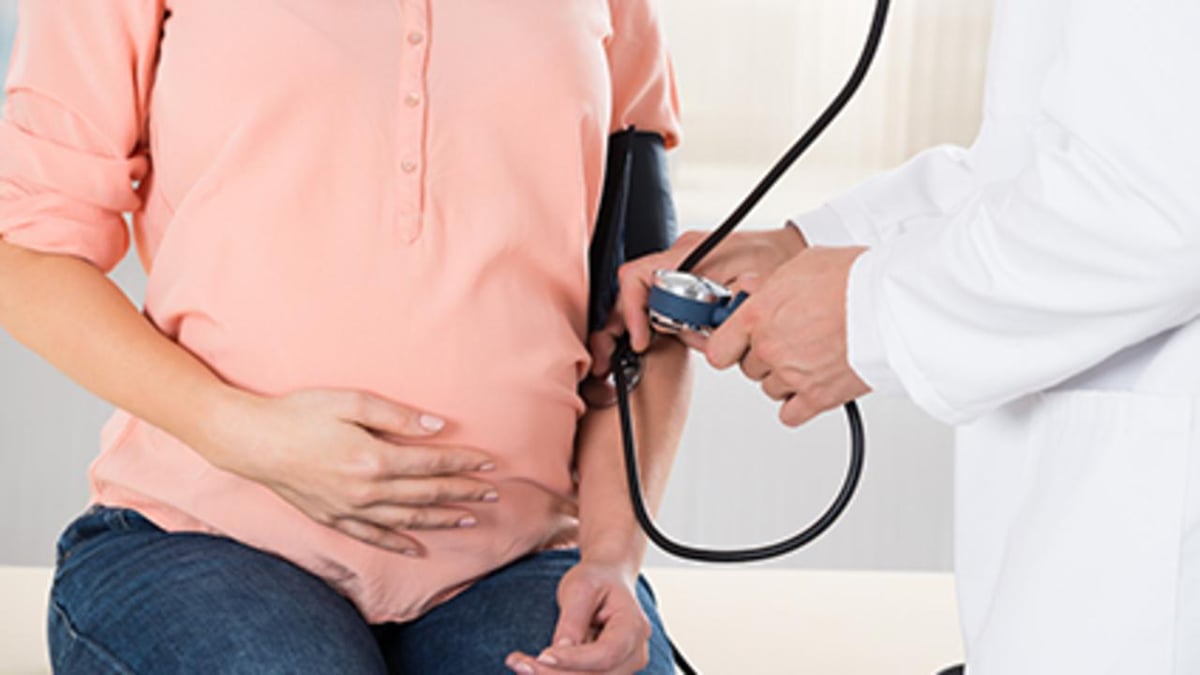Risk of Newly Developed High Blood Pressure Rises After Pregnancy

TUESDAY, Dec. 6, 2022 (HealthDay News) -- One in 10 women will develop high blood pressure for the first time in their lives during the year after they give birth to a child, a new study finds.
“The study findings have implications for postpartum care, particularly among patients without a history of hypertension,” said study lead author Samantha Parker, an assistant professor of epidemiology at Boston University School of Public Health.
“We were surprised at the number of cases captured more than six weeks after delivery, a period that falls well outside of routine postpartum follow-up,” Parker said in a university news release. “Monitoring during this period could mitigate severe postpartum and long-term cardiovascular complications.”
Very little data exists for the women who develop it more than six weeks after giving birth. That’s despite the fact that about one-quarter of those who develop high blood pressure for the first time after pregnancy will do so in that timeframe, the researchers said.
In the study, they used medical records to study prenatal, delivery and postpartum data among 3,925 pregnant women who had babies between 2016 and 2018 at Boston Medical Center.
The research team analyzed patients’ blood pressure measurements from the prenatal period through 12 months after delivery. These measurements were taken during visits and emergency care.
For the study, they defined new-onset postpartum high blood pressure as at least two separate readings, at least 48 hours after delivery, in which the systolic blood pressure (the top number) was at least 140 mm Hg, and the diastolic blood pressure (bottom number) was at least 90 mm Hg. Severe blood pressure was defined as 160 mm Hg over 110 mm Hg.
Forty-three percent of patients with high blood pressure weren't diagnosed until after they had been discharged from the hospital, with roughly half of those happening after six weeks.
Mothers at highest risk of developing this postpartum high blood pressure were older than 35, current or former smokers or had delivered their babies via cesarean section.
Patients with all three of those risk factors had a 29% risk of developing new postpartum high blood pressure. That risk was even higher, at 36%, for Black patients, the investigators found.
The study findings may provide better understanding about racial disparities in maternal illness and death, and the role of high blood pressure, according to the study.
The findings also underscore the need to identify and manage high blood pressure among high-risk patients before they are discharged from the hospital, the study authors noted.
Past research has found that new-onset high blood pressure after childbirth may be 2.5 times more common in Black women than in white women.
“Understanding this relationship between pregnancy and hypertension is particularly important in addressing inequities in maternal cardiovascular disease and death for people of color,” Parker said.
The study noted the risks of postpartum hypertension, which can include stroke, cardiovascular disease and kidney failure later in life. Standard postpartum care includes just one clinical visit about four to six weeks after delivery, so those delayed postpartum hypertension cases may not be discovered.
Future research should explore opportunities to reduce hypertension risk, the authors said, and investigate how this postpartum high blood pressure affects future cardiovascular health.
The findings were published online recently in the journal Hypertension.
More information
The U.S. Centers for Disease Control and Prevention has more on high blood pressure.
SOURCE: Boston University School of Public Health, news release, Dec. 1, 2022
Related Posts
Dogs Can Tell When You’re Talking to Them, and Might Prefer Female Voices
THURSDAY, Aug. 24, 2023 (HealthDay News) -- Mothers use sing-song language to...
Telehealth Prevented Pandemic-Related Care Disruptions for MS Patients
WEDNESDAY, March 16, 2022 (HealthDay News) -- During the pandemic, individuals...
El aumento en los casos graves de estreptococos en los niños en realidad fue una vuelta a la normalidad: CDC
MIÉRCOLES, 8 de febrero de 2023 (HealthDay News) -- Aunque una alerta de salud...
Americans Are Prioritizing Mental Health, With New 988 Hotline There to Help
MONDAY, Oct. 10, 2022 (HealthDay News) -- As the 988 crisis line debuts across...
